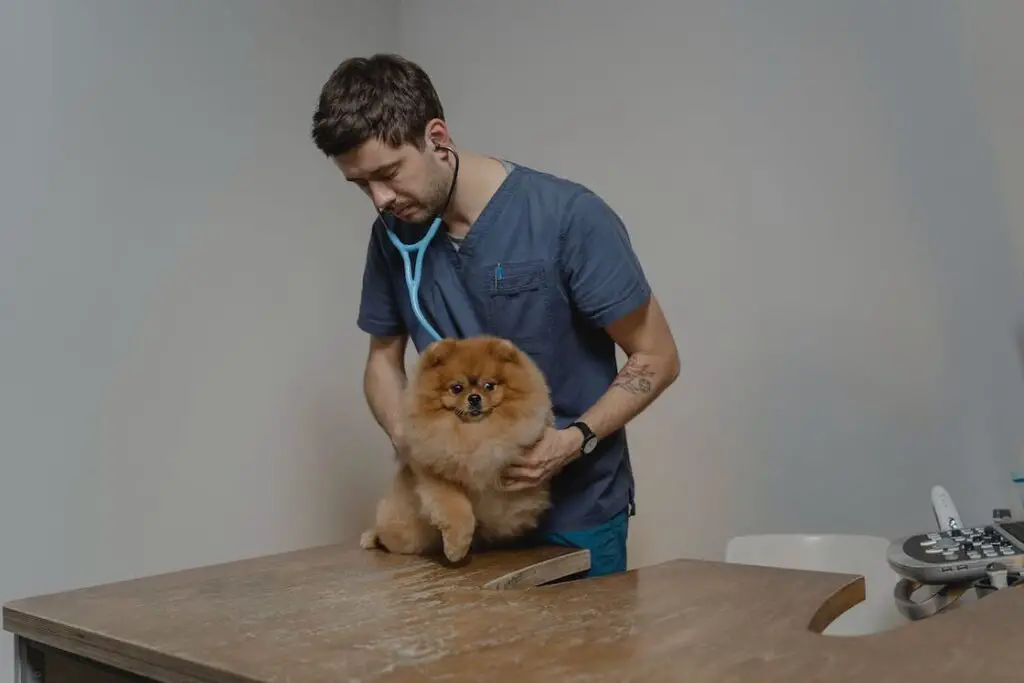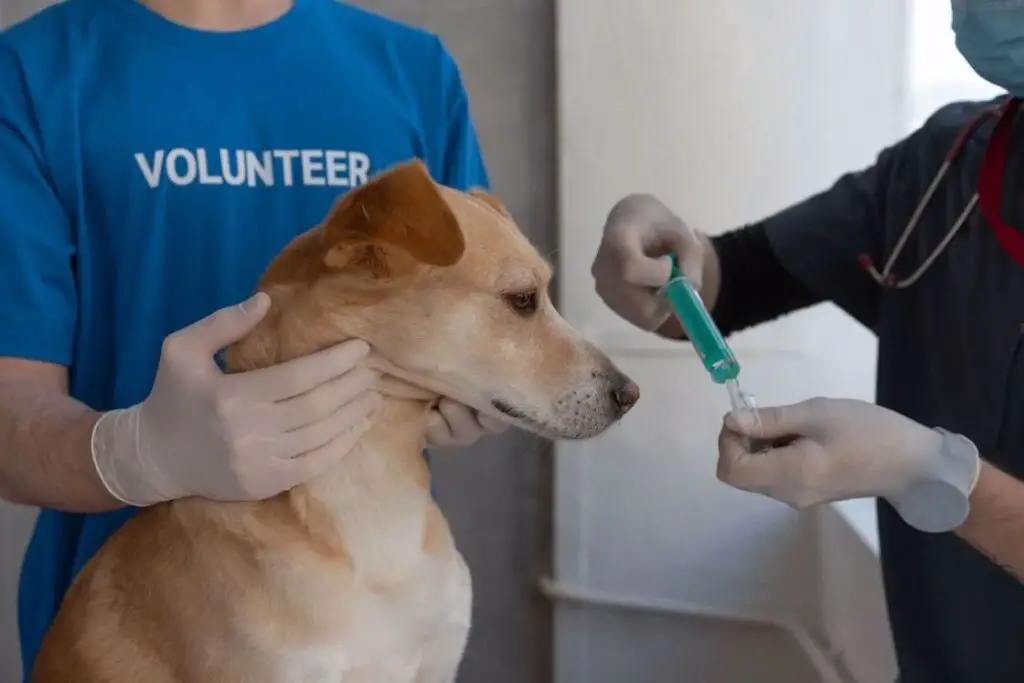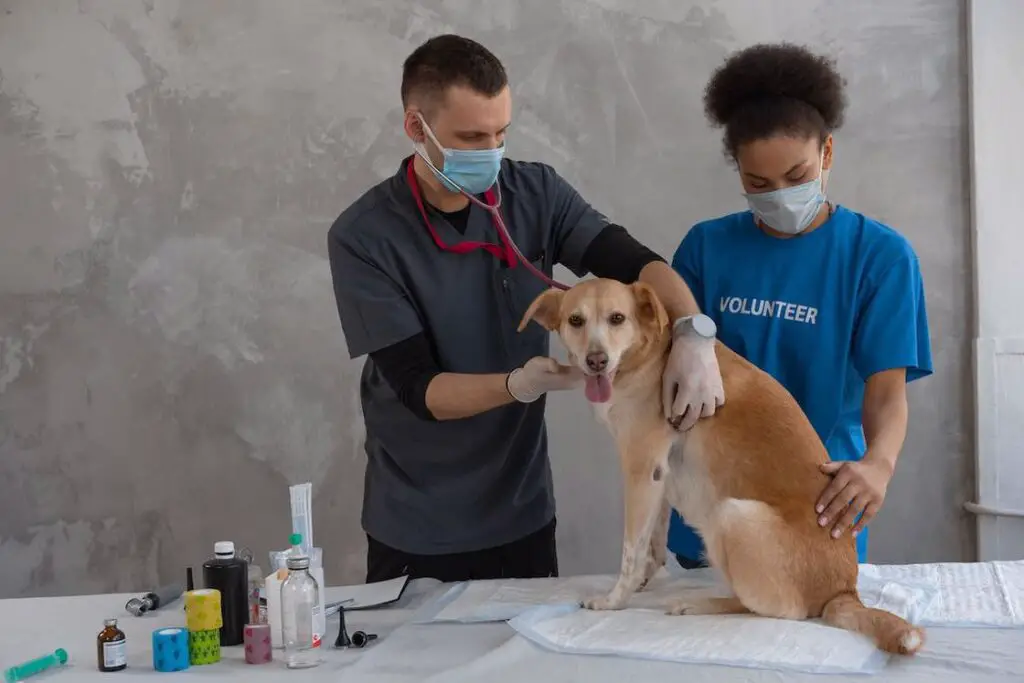Immunization can shield pets from preventable and fatal diseases, just like it can for humans. However, how often do dogs need vaccines? For this guide, you’re going to learn when your dog should get vaccines, including a typical vaccination schedule.
How Often Does a Dog Need Vaccines?
Puppies should get vaccinated every three weeks until they reach four months, whereas adult dogs need vaccines every one to three years. Ideally, you should secure core vaccines during your dog’s eighth, tenth, and twelfth weeks of age. Most veterinarians recommend a three-year vaccination plan for dogs aged two and above.
Planning vaccinations and health care can be confusing, especially if this is your first time caring for a dog. Getting immunization is the first step towards ensuring a healthy life for your dog, so you must understand how often you should get vaccines for your pet.
When Do Dogs Need Shots?
Dogs should start getting a series of vaccinations as soon as they’re old enough to leave their mother so that they can build immunity. Adult dogs must take booster shots every one to three years to maintain their immunity to illnesses they were inoculated against as puppies.
How Many Times Per Year Do Dogs Need Vaccination?
In general, most dogs should get booster shots every year. However, this depends on your dog’s lifestyle and needs, so it’s crucial to have annual checkups and you can ask your puppy’s veterinarian when would be the best time to give them immunization.
For instance, some dog boarding facilities in Temecula require Bordetella immunization every six months. This means your dog needs to go to the clinic twice a year for vaccinations. In some cases, rabies shots can range from one to three years.
What Is a Typical Dog Vaccination Schedule?
This is an example of a typical vaccination schedule for dogs over 16 weeks. Your veterinarian will still assess the appropriate schedule and interval for your dog’s age, breed, lifestyle, and medical conditions.
| Vaccine | Initial Vaccination | Booster Recommendation |
|---|---|---|
| Rabies | Single dose | Annual booster |
| Distemper | Two doses, given three to four weeks apart | Puppies need a booster shot after the initial vaccination. Adult dogs only need a booster shot every three years. |
| Parvovirus | Two doses, given three to four weeks apart | Puppies need a booster shot after the initial vaccination. Adult dogs only need a booster shot every three years. |
| Canine hepatitis | Three doses at 8, 12, and 16 weeks | Puppies need a booster after one year of the initial vaccination. Adult dogs require a booster shot after one to three years. |
| Kennel cough | Two doses, given three to four weeks apart | Puppies need a booster one year after the initial immunization. Adult dogs require a booster shot every three years or more often. |
| Parainfluenza | One dose | A booster may be necessary after one year, depending on the recommendations of the veterinarian and vaccine manufacturer |
| Bordetella bronchiseptica | Two doses of the injected vaccine, one dose of the intranasal or oral product | A dog may need a booster shot every six or 12 months, depending on the environment and living conditions |
| Lyme disease | Two doses, given with a three or four-week difference | An adult dog may need to take a dose annually |
| Leptospirosis | Two doses, given with a three or four-week difference | At least yearly for a dog in high-risk areas |
| Canine influenza | Two doses, given with a three or four-week difference | At least yearly for a dog in high-risk areas |
How Soon Should I Get My Dog Vaccinated?
You can get your dog vaccinated as early as six to eight weeks of age. During this period, dogs lose maternal antibodies, especially after transitioning to a solid diet. Thus, they are developing their own antibodies that they need to strengthen through immunization.
Puppies can’t develop long-term immune responses until they’re about four months old, which is why it’s common to see puppies getting sick early.
If you skip immunization, you risk your dog getting exposed to deadly diseases that may even plague your household and finances. For this reason, it’s vital that your dog gets vaccine shots often, depending on its age.
- Six-eight weeks of age: Rabies, distemper, adenovirus, and parainfluenza core vaccines. Bordetella and parainfluenza for non-core vaccines.
- 10-12 weeks of age: Rabies, distemper, adenovirus, and parainfluenza core vaccines. Leptospirosis, Lyme, and canine influenza for non-core vaccines.
- 14-16 weeks of age: Distemper, adenovirus, and parainfluenza core vaccines. Non-core vaccines include leptospirosis, Lyme, and canine influenza.
- One year: Rabies booster shot and non-core vaccination boosters per your vet’s recommendation.
- Every one to three years: Booster shots for rabies, distemper, adenovirus, and parainfluenza. Non-core vaccination boosters may depend on you or the vet.
What Is the Importance of Vaccinating Dogs Often?
Securing initial vaccinations against common disorders and booster shots can protect your dogs against potentially fatal situations. While the upfront cost may be pretty intimidating, you can save more in the long run if your dog lives a healthy life.
According to the American Society for the Prevention of Cruelty to Animals, routine checkups, preventative medicine, and vaccinations can cost dog owners around $300 per year. Meanwhile, owners may spend $1,700 to $3,400 on unexpected pet medical bills, particularly for severe conditions or diseases preventable through vaccination.
Related Questions
Is It Safe to Get Multiple Dog Vaccinations at the Same Time?
It’s safe for dogs to receive multiple vaccinations at the same time. Veterinarians determine which vaccines your pet can take in one appointment. If there are allergic reactions, the other vaccines may get rescheduled.
How Long Are Dog Vaccines Effective?
Core and non-core dog vaccinations are generally effective for one year. This is why most vaccinations require booster shots every one to three years.
When Do You Stop Vaccinating a Dog?
You may only stop vaccinating your dog after completing its initial immunization. However, you may still need to follow up with booster shots every one to three years to keep your pet healthy and safe from illnesses.
Conclusion
Puppies need vaccines every three weeks for four months, while adults require shots every one to three years. Pet immunization is essential to providing a healthy upbringing for your pet. Schedule a wellness checkup today to determine when and how often your dog needs vaccines.



